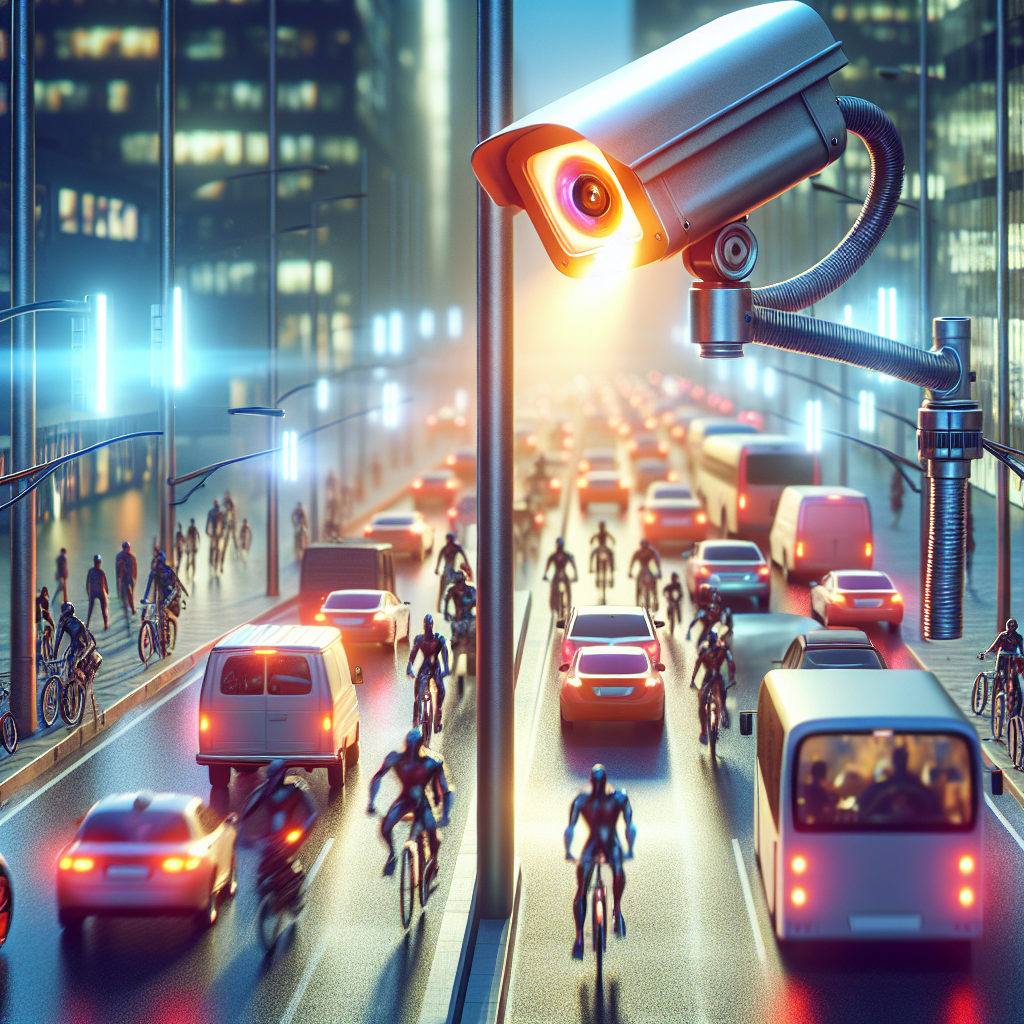Global AI-Powered Cameras Target Distracted Driving as Enforcement Strategies Evolve
In an effort to enhance road safety and reduce distractions behind the wheel, police forces globally are increasingly implementing artificial intelligence (AI)-powered cameras designed to identify drivers texting or not wearing seat belts. This innovative technology not only aims to curb unsafe driving habits but also paves the way for more efficient law enforcement practices.
Acusensus, an Australian tech firm, has partnered with governments in the United Kingdom, Australia, and the United States to deploy its AI traffic monitoring system known as “Heads Up.” The cameras capture images of vehicles and their interiors to determine compliance with traffic regulations, analyzing the data with a “confidence level” to identify potential infractions. In trials across the U.K., nearly half of police forces have tested these systems, raising both hopes for increased safety and concerns regarding privacy.
David Kelly, Acusensus’ vice president of government solutions, reassured that images captured without detected violations are deleted. However, if a violation is flagged, a human officer assesses the image before any potential citation is issued. This process aims to uphold accountability while ensuring that drivers are engaged and reminded of the law in real-time. "With a ticket in the mail, you get it three weeks later, and you’re like, ‘Wait a second. I don’t remember that,’" Kelly explained, highlighting the immediacy of intervention as a key benefit of the technology.
The implementation of these cameras has already shown significant impacts. In North Carolina alone, where the Heads Up Real Time system focuses on commercial vehicles, violations for seat belts increased sixfold, and phone distractions grew ninefold since its launch last year. Similarly, a temporary trial in Greater Manchester detected over 3,200 motorists failing to adhere to seat-belt and texting laws, reflecting the widespread challenges surrounding road safety.
While the technology presents potential benefits, it has spurred discussions about privacy rights and ethical oversight. Legal experts caution that without robust regulations and real accountability, the promise of privacy protection could be undermined. “There has to be real oversight to make sure they are doing what they say they’re doing and then oversight to make sure that if they don’t do it, [there is] a penalty for not doing it,” remarked Daniel Solove, a law professor at George Washington University.
As these AI systems become more prevalent, they prompt reflection on biblical principles surrounding community well-being and personal responsibility. Scripture teaches the value of safeguarding one another and living in a manner that honors our neighbors. As we navigate technological advancements in traffic enforcement, one can recall the teaching from Philippians 2:4, which states, "Let each of you look not only to his own interests, but also to the interests of others."
The application of this principle reinforces the responsibility we hold towards one another as drivers. By adhering to the laws designed to keep our roads safe, we not only protect ourselves but also promote the well-being of fellow motorists and pedestrians.
In conclusion, as we embrace the benefits of technology in our quest for safer roads, it encourages us to foster a culture of accountability and mindfulness. Reflecting on the biblical call to care for others can inspire us towards safer driving practices, ultimately contributing to a community where everyone feels valued and secure. Let this be an opportunity to engage in responsible behavior, promote road safety, and uphold the teachings of care and vigilance that resonate throughout our lives.
Explore and dig up answers yourself with our BGodInspired Bible Tools! Be careful – each interaction is like a new treasure hunt… you can get lost for hours 🙂


